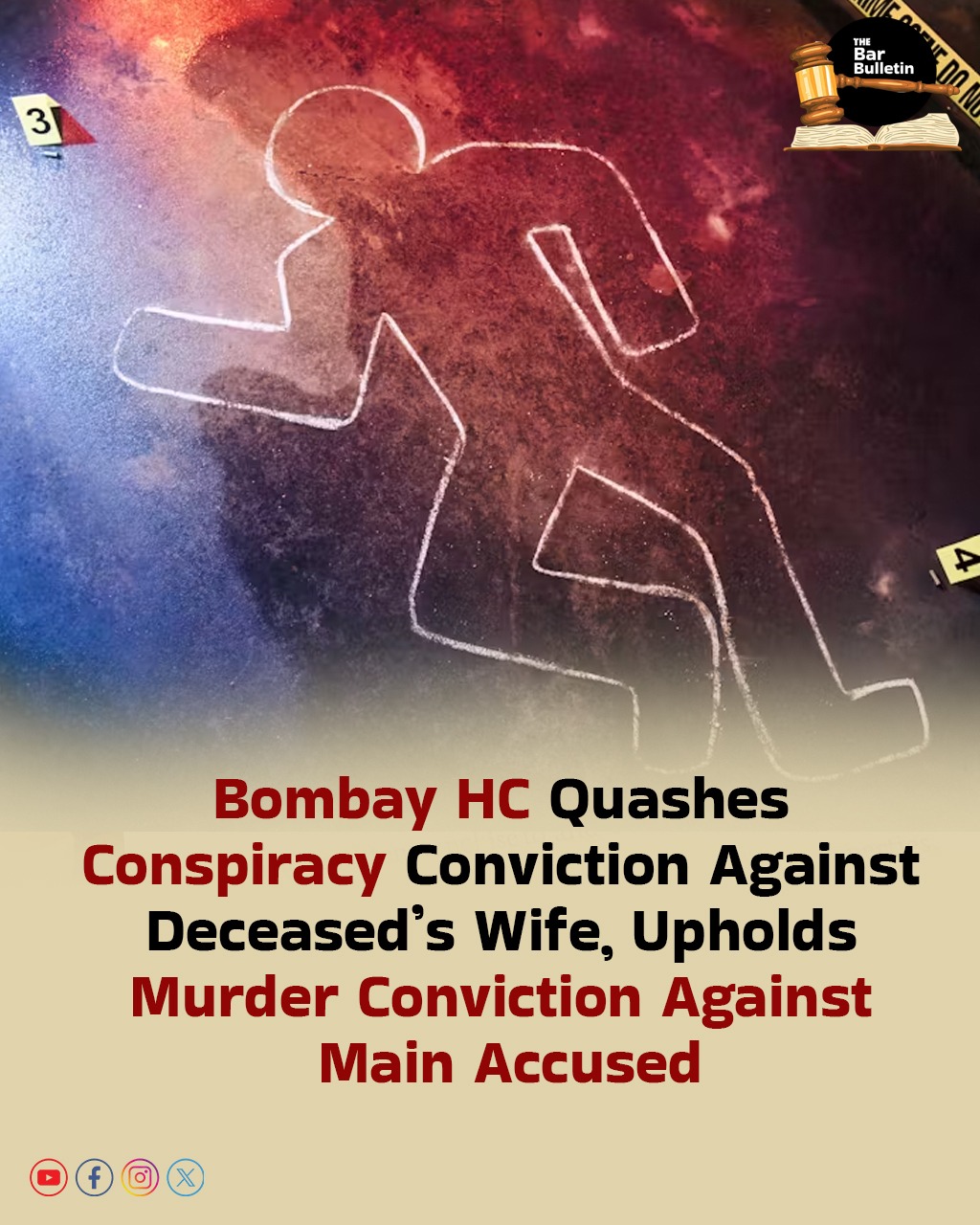The Bombay High Court (Aurangabad Bench) delivered a split outcome, wherein the appeal by one of the accused was dismissed, while the appeal by another co-accused was allowed.
The appeals arose from a judgment dated 17 June 2017 by a Sessions Court, whereby Pradeep Kokate (Accused No.1) and Divya Bhatiya (Accused No.2, wife of the deceased) were convicted for the extortion and murder of Jitendra Bhatiya in connection with ransom demands made to his family. The third accused, Vikram Berad, appealed separately but his appeal was abated following his death during pendency.
On 27 April 2014, Jitendra Bhatiya was murdered by firearm at his business premises. Immediately prior, members of the Bhatiya family received extortionate threats and ransom demands via mobile phone calls and SMS, principally from SIM cards later found in Pradeep’s possession. Prosecution alleged further that Pradeep and Divya, having developed a relationship, conspired for the murder and that Divya provided financial assistance for Pradeep to procure the murder weapon.
Both Pradeep and Divya sought acquittal. Pradeep impugned the admissibility and integrity of electronic evidence under Section 65-B of the Indian Evidence Act, raised doubts regarding the chain of custody of physical exhibits, and disputed the reliability of eyewitness identification under adverse lighting conditions.
Divya’s defence focused on the absence of direct and admissible evidence. It challenged the confession recorded by Special Executive Magistrate instead of Judicial Magistrate as required under Section 164 CrPC, and denied participation in any conspiracy citing that alleged corroborative facts constituted mere suspicion, not proof.
The prosecution submitted that the certificates pertaining to call detail records (CDRs) satisfied the requirements of Section 65-B, and that circumstantial evidence, including eyewitness identification and ballistics, was sufficient to uphold the convictions.
The Bench comprising Justice Nitin B. Suryawanshi and Justice Sandipkumar C. More found that the prosecution’s circumstantial evidence established, beyond reasonable doubt, that Pradeep (i) was in possession of the SIM cards used for ransom calls; (ii) was identified by an eyewitness before, during, and after the incident at the scene with the murder weapon; (iii) the weapon and ammunition recovered from Pradeep matched the fatal shot by ballistic analysis; and (iv) was connected to the crime via admissible electronic records, whose certification under Section 65-B of the Evidence Act had been deemed sufficient.
The reliability of police testimony and admissions of the accused, in light of the Apex Court precedent in the case of Ramanand Alias Nandlal Bharti v. State of U.P.[1], outweighed the lack of support from panch witnesses.
The Court further held there was no direct evidence of conspiracy or any overt act in furtherance of the alleged criminal agreement attributable to Divya. Her confession, improperly recorded by a Special Executive Magistrate, was inadmissible. The existence of an alleged relationship and call contact was insufficient to substitute suspicion for legal proof of conspiracy, per Supreme Court decisions in State of Kerala v. P. Sugathan[2] and Ram Sharan Chaturvedi v. State of M.P.[3].
The Court analysed but ultimately rejected the inference that Divya played an active role, noting that the cash purportedly given to Pradeep remained unused and that no objective evidence or conduct connected her to the substantive offence.
In conclusion, Divya was exonerated. The bench held that mere existence of a relationship or continuous telephonic contact cannot establish the legally required chain of circumstances or active participation in a criminal conspiracy absent admissible evidence of agreement or overt act before the offence. Suspicion, however grave, cannot replace proof for conviction under Section 120-B IPC.
On the other hand, Pradeep’s conviction was maintained. The bench found that all ingredients of Section 302 IPC (intentional killing) and associated charges were proved on the basis of consistent circumstantial, electronic, medical, and ballistic evidence.
Ultimately, the Pradeep’s appeal was dismissed, and all convictions and sentences against him were affirmed. Divya’s appeal was allowed. The Court acquitted her of all charges under Sections 120-B and 201 IPC, and ordered her to be released forthwith.
Cases relied on:
1. Ramanand @ Nandlal Bharati vs The State of Uttar Prdesh in Criminal Appeal No. 6465 of 2022 decided on 13th October, 2022
2. State of Maharashtra vs Krishna, 2014 All M.R. (Cri) 4224
3. Bhausaheb vs State of Maharashtra, 1997 Cr.L.J. 467
4. Mohammad Kalid vs State of West Bengal, (2002) 7 SCC 334
5. State of Kerala vs P. Sugathan and Anr., AIR 2000 SC 3323
6. Ram Sharan Chaturvedi vs State of Madhya Pradesh, Criminal Appeal No. 1066 of 2010 decided on 25.08.2022
[1] Criminal Appeal No. 6465 of 2022 decided on 13th October, 2022
[2] AIR 2000 SC 3323
[3] Criminal Appeal No. 1066 of 2010 decided on 25.08.2022

